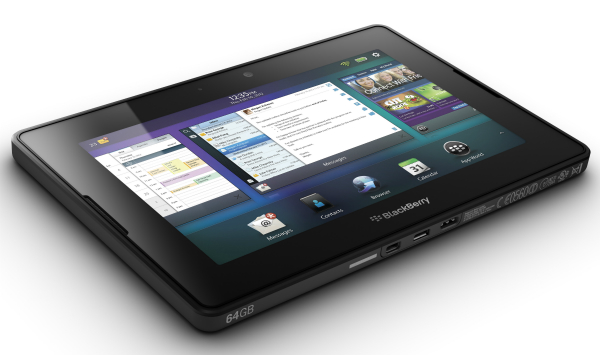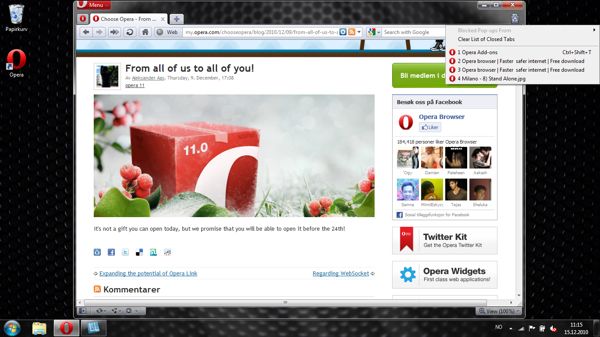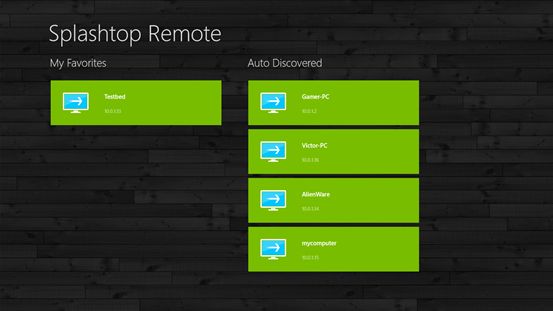
Promodity's marketing campaign management service for small businesses goes free
Still reeling from the $1.5 million in funding it secured in July, Israeli startup Promodity on Friday announced its advertising campaign management platform for small businesses will now be free.
One of the main goals of Promodity's service is optimizing conversion rates, which is more or less the Golden Goose of Web marketing. The conversion rate, in short, is the ratio of people simply browsing to people actively buying. Of course, "buying" isn't always the goal for marketers, sometimes getting a website viewer to become a member is the goal, sometimes getting them to download an app or piece of software is the goal.

Windows 8 looks like it was designed by a bunch of two year-olds wired from watching too much Barney
I hate flat things. Flat tires. Flat musical notes. Flat soda bottles because my teenage son can't bring himself to tighten the cap properly. I just can't stand stuff that lacks in one dimension or another.
So you can imagine my reaction to the recently leaked screenshots of the final Windows 8 RTM build's UI. Not only has Microsoft done away with the last vestiges of Aero, the company has taken a virtual steamroller to the entire Windows landscape.

Anti-Patent Troll bill to 'save high-tech innovators' hits House
"Patent trolls," or non-producing companies that buy up patents in hopes of litigating their way to profit, have been in the technology news for years. They have, in effect, created a cottage industry within tech where one company after another uses poorly written and overly broad patents to block new products, squash competing products from reaching the market, or just to try to defend themselves from possible legal extortion. However, a new bipartisan bill coming from the desk of US Congressional Representative Peter DeFazio (D-OR), cosponsored by Rep. Jason Chaffetz (R-UT) will be the first legislative deterrent to predatory patent troll lawsuits. The bill's goal is to amend Chapter 29 of title 35 of United States legal Code.
The new bill, H.R 6245 112th Congress, 2011–2012, 'Saving High-Tech Innovators from Egregious Legal Disputes (SHIELD) Act' [GovTrack] could change the patent lawsuit game. The introduction to the bill states:

Smartphone users claim more service issues than feature phone users
The Pew Research Center conducted a survey on the usage of mobile phones in the United States, detailing problems encountered in daily use focusing on dropped calls, unwanted calls, spam and download problems. Satisfaction is the key word when using any phone, be it a smartphone or otherwise, and the results of this survey show that smartphone users experience more disruptions that could lead to a drop in satisfaction.
According to the survey, 88 percent of U.S. adults own a mobile phone, of which 72 percent seldom experience dropped calls, while 32 percent of them face a recurrent drop in calls minimally a few times a week.

PicEdit: feeble image editing, but check out those annotation tools [review]
As image editors go, PicEdit is what you might call "limited." There are manual tweaks for brightness, contrast, hue and saturation, for instance, and a very short list of filters and effects (Mosaic, Blur, Sharpen, Noise, Invert, Grayscale), but that’s about it. You don’t even get a Resize tool.
PicEdit is fairly useless when it comes to photo corrections, then. But if you want to draw or annotate your images then it’s an entirely different story, because here the program turns out to be surprisingly capable.

Facebook and Twitter will soon feel the 'MySpace Effect'
If you still have a MySpace you likely fit into one of three groups: You forgot to formally delete your account; you are trying to advertise your small-time band to a couple dozen hardcore leftover users; you log into MySpace right after you finish signing into AOL Desktop merely as a matter of old habit.
But I'm not interested in singling out those still using the service, as the droves of users who have dumped the website outright far outnumber the faithful by now. I'm outlining something I'd call the "MySpace Effect".

Good news for RIM fans: RIM unveils the 4G LTE BlackBerry Playbook
Suddenly RIM is in the news again, and this time it’s not about financial troubles or product delays to 2013.
Instead, the Canadian manufacturer announced the introduction of its new 4G LTE BlackBerry Playbook, along with the specifications of the 4G LTE 7-inch tablet aimed to bring stability to a company that’s facing difficult financial problems. When’s it coming and where?

Opera 12.01 FINAL released with minor changes the order of the day
Norwegian browser developer Opera Software ASA has released Opera 12.01 FINAL, the latest stable build of its cross-platform, freeware web browser. Version 12.01 is a minor release, consisting mainly of bug fixes and security patches.
This follows the release of version 12, which boasted vastly improved startup times, experimental hardware acceleration, Do Not Track privacy features and 64-bit support on Windows and Mac. Version 12.01 follows shortly after Opera NEXT 12.50 released a new snapshot, previewing new features via a publicly available alpha build.

Dead Trigger is now free on iOS too, but is piracy really to blame?
A week after Madfinger Games made much to-do about piracy driving its decision to make first-person zombie shooting game Dead Trigger free on the Android platform, the game developer has now done the same for the iOS version.
Those who purchased the game while it was 99 cents will be given in-game currency 25 gold and ten casino chips in the 1.1.2 update. Unlike last time however, there is no grandstanding from CEO Marek Rabas on a privacy problem on Apple's mobile platform. All we know is that Madfinger is moving to a "freemium" model with Dead Trigger, and in one case, blamed it on piracy.

Why does Google subsidize Nexus 7?
To understand why Google subsidized the Nexus 7, you have to first understand what makes the tablet market unique from all other forms of personal computing. All personal computing devices fall into three major categories: PC, cellphone, and tablet (with possibilities for more in the future such as “smartglasses”, which Google and others are developing).
The PC market is mature, there have been very few changes since the nineties; functionality has steadily improved and the only big change was the advent of the laptop, which changed the form, although, it didn’t change the two main players: Apple and Microsoft, with Microsoft’s hardware manufacturers also playing an important role. The players in the PC market have changed little (sure HP bought Compaq and IBM sold out to Lenovo). It would take a truly revolutionary product to change anything even though there have been attempts -- the constant presence of Linux, and the recent (relatively) introduction of Chromebooks for example -- none have have managed to have any impact.

Yammer can now detect employee emotions
Yammer, the social network and messaging platform designed to be used within companies, announced on Thursday that Kanjoya's Crane sentiment analytics dashboard now integrates with Yammer, letting managers watch their employees' morale, attitudes, and reactions to procedural changes based upon their Yammer posts.
Crane correlates emotional "profiles" with behavior on the social network, and presents employee sentiment in various ways. Instead of trending topics, Crane shows Yammer's "trending emotions," Instead of finding the most popular and influential people, Crane shows whose posts on Yammer have the biggest emotional impact. It is similar to many content analysis engines, but it is tuned specifically to isolate emotional reactions.

Splashtop remote desktop launches on Windows 8
Even though the Windows Store is still only in Preview Mode, Splashtop Inc. on Thursday announced it had launched its flagship remote desktop client for Windows 8 there.
The popular Splashtop application lets users access their PC desktop from their mobile device, and with it, Windows 8 tablets will be able to connect to other Windows desktops and Mac OS desktops over Wi-Fi and 3G/4G data connections, with low enough graphical latency to enable remote gameplay and HD video streaming.

Switch applications more easily with 7 Taskbar Numberer
If you want to use the keyboard to switch from one Windows 7 application to another, you could press Alt+Tab repeatedly, cycling through all your programs until you reach the one you need.
But it could be easier to access it directly. If you see that Outlook’s taskbar icon is eighth from the left, for example, all you have to do is hold down the Windows key, press 8 and it’ll immediately jump to the foreground (or launch, if it’s a pinned shortcut).
Android 4.0 Ice Cream Sandwich is growing, but Gingerbread still rules them all
As manufacturers release upgrades to Android 4.0, and people buy Ice Cream Sandwich-based smartphones, Android 4.0 Ice Cream Sandwich (ICS) accounts for 15.9 percent market share of the Android operating system family, which is the highest distribution level since its introduction in October 2011. This statistic is provided by Google based upon the number of devices accessing Google Play within a 14-day period up to August 1. Net Applications rates ICS at an even higher percentage of the Android market.
Android 4.0.3 to 4.0.4 account for 15.8 percent Android market share, a whopping 99.37 percent of the Android 4 Ice Cream Sandwich deployment. After the release of popular Android smartphones like the Samsung Galaxy S III running Android 4.0.4 or HTC One X running Android 4.0.3 as well as the updates to Android 4.0.4 to Sony Xperia S, Samsung Galaxy S II to Android 4.0.3, Motorola RAZR MAXX to Android 4.0.4, the update of the Samsung Galaxy Nexus to 4.0.4 on Verizon and GSM owners who haven’t yet updated to 4.1 and to other older devices, ICS 4.0.3-4.0.4 is justifiably more popular than Android 4.0-4.0.2, which is now just a speck in its rear view mirror.

There are more than 83 million active 'fake' users on Facebook
Tucked away in Facebook’s company filings published this week, was an interesting snippet of information. Although the social network had 955 million Monthly Active Users (MAUs) as of June 30, 2012, an increase of 29 percent from this time last year, some 8.7 percent of that figure – around 83 million users - were identified by Facebook as likely to have come from fake sources.
The number of people actively using the service is calculated using internal company metrics based on the activity of user accounts, and Facebook has determined that roughly 4.8 percent of its MAUs may have originated from duplicate accounts, with a further 2.4 percent coming from user-misclassified accounts (that is personal profiles created instead of pages for businesses or "non-human entities," like pets), and 1.5 percent from undesirable accounts (those created by spammers, for example).



